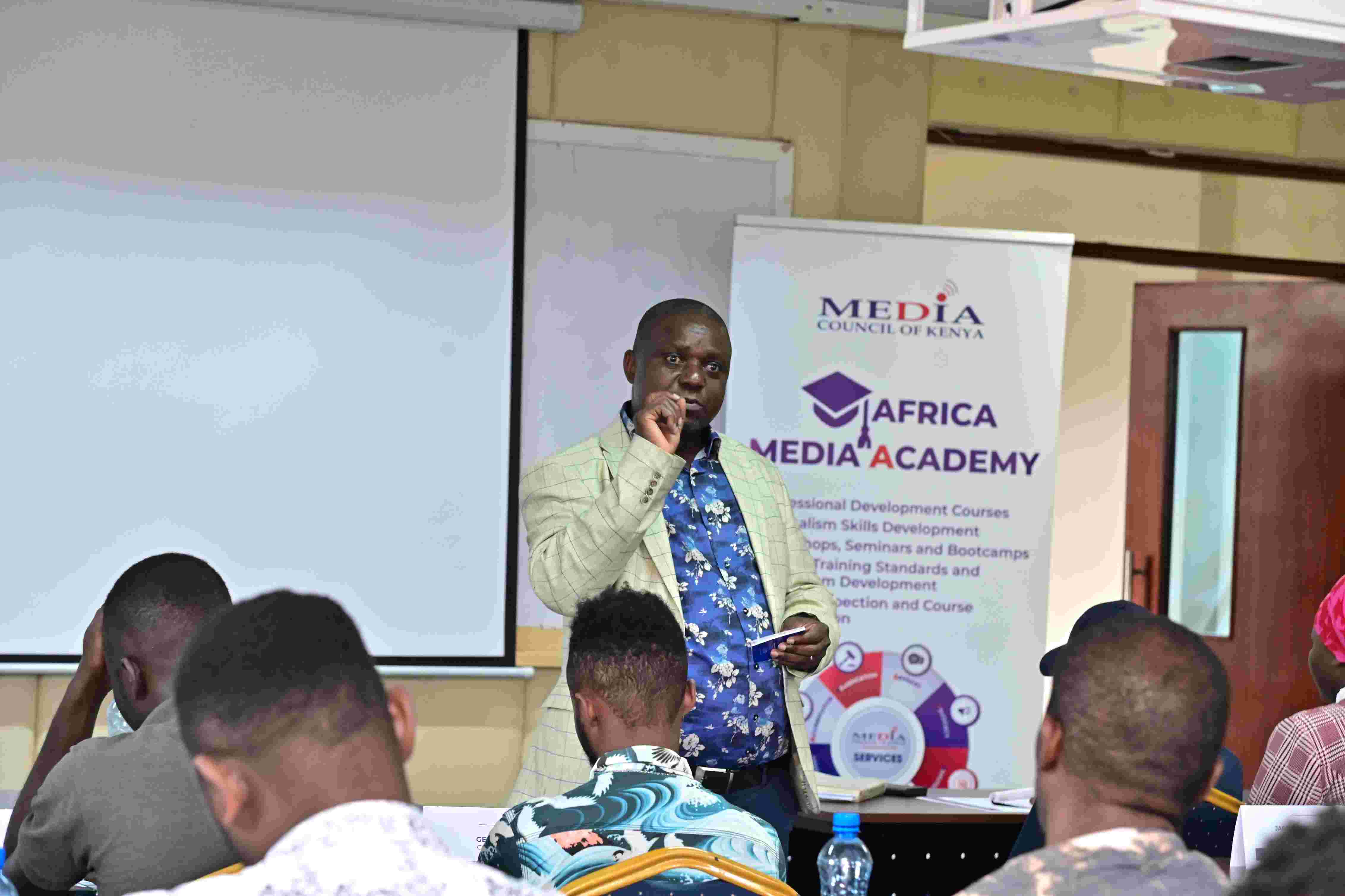
The Media Council of Kenya (MCK) has underscored the importance of maintaining high standards of ethics and professionalism in media practice.
MCK Director for Media Training and Development Victor Bwire, said that fostering ethical journalism and distinguishing between various media roles is essential to ensure balanced, accurate, and responsible reporting.
He emphasised that the media industry must recognise that not all practitioners qualify as journalists, which requires tailored approaches to regulate the diverse roles within the sector.
“By differentiating the roles and responsibilities of media practitioners, we can better uphold the integrity of information shared with the public,” he said during a Media Studies Module Training for Media Practitioners in Nairobi.
Mr Bwire pointed out the rise of misinformation calling for more stringent ethical standards in media and for journalists to be well informed to avoid inadvertently spreading falsehoods.
He called on media houses to enhance training programs and support systems to equip journalists with the tools to verify information and maintain professional integrity.
“Journalists must be committed to verifying their sources and avoiding sensationalism, especially in sensitive reporting areas,” he added.
He highlighted the importance of the MCK’s mandate to regulate the media space to safeguard public trust and promote responsible journalism across Kenya’s expansive media landscape.
“Strengthening media regulation helps create an environment where factual reporting thrives, benefiting both practitioners and the public,” he stated.
MCK Manager for Accreditation and Compliance Rebecca Mutiso, delved deeper into the accreditation process, describing it as a cornerstone of professional journalism that reinforces both credibility and accountability.
She elaborated that accreditation not only recognises journalists formally but also serves as a commitment to uphold high standards of ethics and professionalism across all media roles.
“Accreditation is a critical tool for supporting professionalism within the media sector, ensuring that audiences receive trustworthy information,” she asserted.
Ms. Mutiso further emphasised the importance of ethical judgment, noting that journalists are often faced with complex situations requiring discernment and integrity.
“We must equip our media practitioners to make ethically sound decisions, particularly when handling sensitive stories that can impact the public and individual lives,” she added, stressing the need for ongoing support and guidance for journalists.
The training covered a range of topics, including media ethics, the importance of professional standards, accreditation processes, the role of media in society, and the techniques required for effective interview practices.